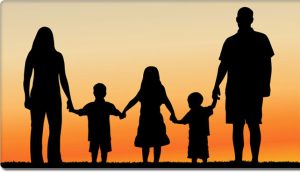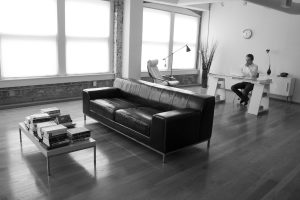I’m starting to struggle with aging. People in my parents’ generation tell me I’m laughably young, but maybe it’s the beginning of the process that startles you the most. Seeing your cheeks get lower and your eyelids loosen seems off somehow—like it’s not really you in the mirror.
Each year of my twenties felt shorter and shorter, and I’ve struggled to keep up with the changes, both in my appearance and in my understanding of how life works. It might be because I have a deep sense of identity diffusion—I see myself across a wide range of ages and roles.
I am still two years old, five years old, twelve, and sixteen. I’m getting my driver’s license, laughing on merry-go-rounds, and hugging my parents goodbye at the entrance to my dorm. I am a college student; a teacher; a young professional starting his career. I’m still that kid working in a three-job frenzy between smoothie making, door-to-door sales, and substitute teaching, trying to make it to my first apartment. I feel a deep connection to every friend I’ve had since elementary school. I remember vividly everyone I’ve been in love with.
When I look in the mirror, I expect to see all those iterations of myself looking back. They should be carved into the flesh somehow, stored in the hard drive of my skin. Instead, I see the weight of sadness and loneliness. Maybe that’s just how aging looks. Or maybe it’s how the world looks now.
My parents and grandparents never looked that way to me. My teachers didn’t. Wrinkles were marks of maturity and experience when I was a kid. Kind, thoughtful creases made you trust somebody.
I really don’t mind looking older, in the way they did—where your eyes are still young.
I don’t mind looking older. I just want to look happy. I want to look like me.
I know it sounds crazy to talk that way six months before thirty—yeah, you can laugh if you want—, but my generation lives in a universe where our sense of image is heightened. Our friends—real or imaginary—live on our computer screens, where their vlogs and pictures are carefully moderated to demonstrate consistency. Change in appearance means unfamiliarity to viewers—which means fewer subscribers and less affirmation.
It’s even more pronounced for movie buffs and Netflix binge-watchers, whose unconscious idea of normalcy is situated around the Hollywood ideal. Actors spend a chunk of their salaries on looking the same throughout their twenties and thirties—keeping their skin taut, eating on customized nutrition plans, and maintaining a physique that would be otherwise unsustainable outside of work as a professional athlete. Just look up pictures of Stephen Amell “letting himself go,” where he looks better in his mid-thirties than I looked at twenty-two.
Not to mention the fact that actors are more emotionally dynamic, more vulnerable in their performances than most people are in real life. Add that to life in a heavily isolationist society, and we often feel more connected to the images we follow than we do to our colleagues and friendship circles in the real world. Your sense of beauty becomes sharply focused.
It’s no flak against guys like Amell—more power to them, and the rest of us should do what we can to take care of ourselves. It’s just that a nine to five imposes certain limitations. Even entrepreneurs have to put in their hours.
As the generation that pioneered virtual community, I guess it’s up to us to solve its problems. You can’t get ahead of time. It moves forward—and backward—too quickly. But maybe you can keep up. Maybe, if you cultivate a sense of presence in the now, you can feel like things are the way they’re supposed to be.
I hope so. I hope I can figure out what the changes mean. I hope there’s not really some universal standard of beauty that I’m moving away from. Above all, I hope I can enjoy the time I have while I’m learning.
Guest blogger






